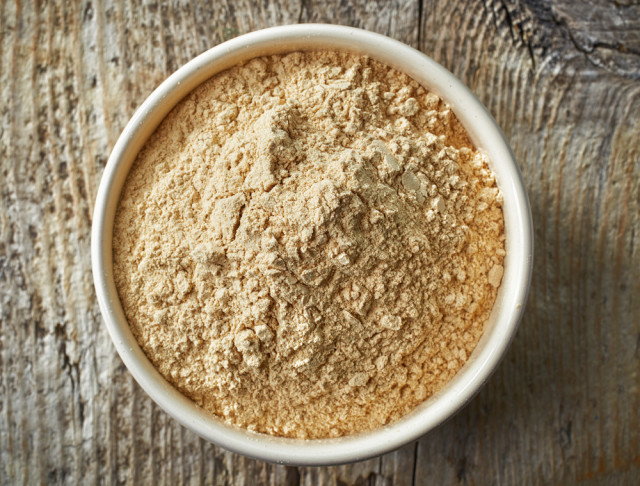The Trending Smoothie Ingredient that Could Boost Your Libido (and More)

Image: Shutterstock
If you've been frequenting Portland's juice and smoothie bars, you'll likely have noticed maca is making a run for superfood of the moment—and the tastemakers of healthy drink trends say it's not going to back down any time soon. We tapped the nutrient knowledge of Anna Rossinoff and Megan Fuetterer of Portland's Zest Nutrition, the registered dietitians and nutritionists at Oregon Health & Science University that have earned a following encouraging people to move beyond fad diets and eat real foods to truly nourish our bodies. Their real-world approach to food as medicine is a great resource for separating the superfood fact from fiction. Here's their take on maca, and few places to try it out for yourself:
What is it? "Maca (also known as lepidium meyenii) is a root vegetable related to radishes and turnips, grown in the Andes Mountains of Peru. The Incas have used maca for thousands of years to increase fertility, libido, and endurance—which are things we all want more of, right?!"
But are these traditional uses of maca actually effective? "Maybe! Preliminary studies have shown increased sexual desire, sperm count, and sperm motility in men. Other studies have shown maca may be beneficial in lowering stress and treating symptoms of menopause. These effects have been shown at amounts between 500-1000 mg three times per day of dried root powder. More research needs to be done to support these findings, but when consumed in moderation, maca is generally safe."
How do you use it? "Try adding into smoothies or homemade energy bars. As part of the mustard family, maca has a strong flavor. It is also sold in capsules if the taste does not appeal to you. For those with a sensitive stomach, gelatinized maca is typically better tolerated."
Who shouldn't use it? "It is best to avoid maca supplementation during pregnancy and breastfeeding as there are not studies to show it is safe during these stages of critical development. Maca contains glucosinolates and should therefore be avoided in those with thyroid conditions. Some preliminary research shows maca may have estrogen like effects in the body and may not be indicated for those with breast cancer, endometriosis, or other hormone-related conditions.
The takeaway: "From what we currently know, enjoying maca occasionally in a smoothie is generally safe and may even have some potential benefits. However, by eating a well-balanced diet, high in whole grains, legumes, fruits, vegetables, lean proteins, and healthy fats, we can improve endurance and libido without maca supplementation. Coming back to the fundamentals of healthful food choices proves better than supplementation of any kind 9 times out of 10."
Try it for yourself:
- Maca Cacao smoothie at Greenleaf: maca, cacao nibs, almond butter, oats, banana, cinnamon, nutmeg, maple syrup, almond milk, ice
- Maca Madness smoothie at Sip and Canteen: maca, almond milk, banana, almond butter, dates, vanilla, ice
- Grand-Daddy Purple smoothie at Kure: acai berries, goji berries, blue/green algae, strawberries, coconut yogurt, maca, kale, gingko, ginseng, agave, coconut water, ice
- Maca Nut smoothie at Back to Eden Bakery: maca, peanut butter, dates, banana, hazelnut milk, ice
- Warrior smoothie at Harlow and Prasad: strawberry, avocado, maca, date, vanilla, hemp seeds
- Cinnamon Red Maca nut butter from Jem Raw: sprouted, organic nut spreads handcrafted in Bend. In our taste test of the region's best alternative nut butters, this one came out on top.




